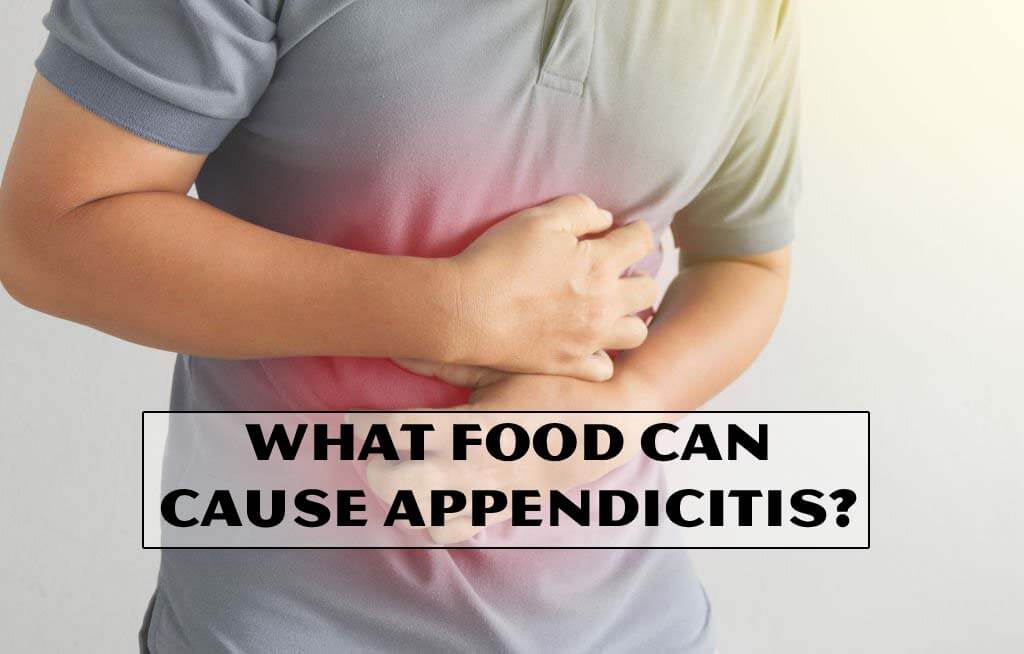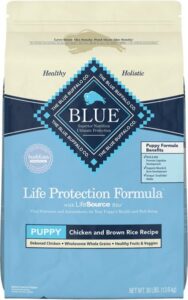Appendicitis is usually caused by a blockage, typically from a buildup of feces or foreign body. Certain foods are known to increase the risk of appendicitis due to their high fiber content. These include popcorn, seeds, nuts, and raw vegetables like broccoli and celery.
Eating too much of these foods can cause intestinal blockages which may lead to appendicitis. Highly processed food such as fast food and fried items can also contribute to an increased risk because they contain high amounts of fat which slows down digestion and increases the chance for blockage in the appendix. Additionally, dairy products have been linked with an increase in inflammation that could trigger appendicitis as well as other diseases related to digestive problems.
Appendicitis is an inflammation of the appendix, a small sac-like organ located near the large intestine. While there is no definitive cause for appendicitis, many believe that eating certain foods can increase your chances of developing it. High-fiber and high-fat foods as well as dairy products such as milk, cheese and ice cream are believed to be some of the leading culprits in causing appendicitis due to their slow digestion times which can cause blockages in the intestines.
Additionally, consuming too much sugar or processed food has been linked to increasing one’s risk for this painful condition. To reduce your likelihood of developing appendicitis, it’s best to maintain a balanced diet with plenty of fruits and vegetables while limiting consumption of fatty or sugary snacks.
What is the Leading Cause of Appendicitis?
Appendicitis is a condition that causes inflammation and infection of the appendix, a small organ located in the lower right side of the abdomen. The leading cause of appendicitis is an obstruction or blockage in the appendix, typically caused by hard stool, parasites or tumors. In some cases, it can occur suddenly with no apparent underlying cause.
Other risk factors for developing appendicitis include being between 10 and 30 years old (the peak age range), having a family history of appendicitis, recent gastrointestinal issues such as diarrhea or constipation, food poisoning from certain bacteria like salmonella and shigella, viral infections such as gastroenteritis and Crohn’s disease. If left untreated, appendicitis can lead to serious complications including peritonitis – an inflammation of the lining surrounding your abdominal organs – sepsis or even death if not treated quickly enough. It’s important to get medical attention right away if you think you have symptoms of appendicitis so that treatment can begin as soon as possible to avoid further damage to your body.
What is the Risk Diet for Appendicitis?
When it comes to diet and appendicitis, there is a lot of conflicting information out there. Some research suggests that certain foods can increase the risk of developing appendicitis while other studies say that certain diets may actually reduce your risk. It’s important to consider both sides when trying to determine what the ideal diet for preventing or reducing the risk of appendicitis should look like.
First off, some experts believe that eating a low-fiber diet can increase your chances of getting appendicitis. This means avoiding high-fiber foods such as fruits, vegetables, whole grains and legumes as they contain cellulose which can cause inflammation in the appendix if not properly broken down by digestive enzymes. Eating processed meats such as hot dogs and sausages should also be avoided due to their high fat content which can lead to blockage in the intestines and eventual appendix inflammation.
On the other hand, some studies suggest that consuming an anti-inflammatory diet rich in omega 3 fatty acids from fish oil supplements or wild caught salmon could help reduce your risk for getting appendicitis because these oils are known to have powerful anti-inflammatory properties. Additionally, incorporating probiotic foods into your daily routine will help maintain good gut health which is essential for keeping your body free from any type of disease including appendicitis since poor digestion leads directly to infection in this part of our bodies.
Can Lack of Water Cause Appendicitis?
No, lack of water does not cause appendicitis. Appendicitis is an inflammation of the appendix, which is a small organ located at the end of the large intestine. It’s believed to be caused by a blockage in the appendix due to either infection or swelling.
This obstruction can cause pressure and pain in the abdomen that worsens over time if left untreated. While it’s important to stay hydrated for overall health, there isn’t any evidence linking lack of water consumption with appendicitis specifically. In fact, drinking too much water can increase your risk for developing other digestive issues such as diarrhea and bloating which may make symptoms worse if you are already experiencing acute appendicitis.
How Can You Avoid Getting Appendicitis?
Appendicitis can be a very serious and painful condition. For those who do not know, appendicitis is an inflammation of the appendix which can lead to severe pain in the abdomen and if left untreated, it could rupture. Fortunately, there are some ways to reduce your risk of developing appendicitis and its complications.
First and foremost, maintaining a healthy diet is key in avoiding any medical issues related to the appendix. Eating plenty of fruits, vegetables, nuts and seeds that are high in fiber will help keep your digestive system functioning properly as well as ensure that no blockages form within the intestines or colon that may cause appendicitis. Additionally, staying hydrated by drinking 8-10 glasses of water every day helps make sure there’s enough moisture for optimal digestion.
It’s also important to practice good hygiene habits such as regularly washing your hands with soap before eating food or coming into contact with others who may have viruses or bacteria on them that could travel into your body through contaminated food particles or liquids like saliva from coughing/sneezing etc.. Finally exercising regularly has been shown to improve overall health including reducing stress levels which can benefit everyone even though it does not directly prevent appendicitis itself.
Overall making changes to lifestyle factors like diet and exercise along with proper hygiene measures should all be taken seriously if one wishes to avoid getting appendicitis or other ailments associated with digestion problems such as constipation or diarrhea etc… All these steps combined together will go a long way towards keeping you healthy!

Credit: ramblersf.com
Can Stress Cause Appendicitis
Stress can be a major contributor to the development of appendicitis. High levels of stress can cause an acute inflammation in the appendix, leading to increased pressure and pain. Research has found that long periods of stress can weaken the immune system, which may make someone more susceptible to developing appendicitis.
It is important for individuals who are under significant amounts of stress to manage their mental health so as not to increase their risk for this condition.
Food for Appendix Patients
Appendix patients must take caution when it comes to their diet. Foods that are high in fiber, such as fresh vegetables and fruits, should be consumed in moderate amounts. Eating smaller meals more frequently can also help reduce the risk of digestive discomfort.
Additionally, foods that are high in protein and low-fat dairy products may help to provide necessary nutrition without aggravating the appendix. It is important for appendix patients to speak with a doctor or registered dietitian about specific dietary requirements during recovery from an appendectomy or other gastrointestinal issues related to the appendix.
What Drink Can Cause Appendicitis
Consuming carbonated and sugary drinks has been linked to an increased risk of appendicitis. Studies have shown that people who consume more than two servings of these types of beverages per day are more likely to develop appendicitis than those who drink fewer or none at all. While it’s not clear what the exact mechanism is, it appears that high-sugar consumption can lead to inflammation in the digestive system and may be a contributing factor for this condition.
Conclusion
This blog post has provided an overview of the potential food-related causes of appendicitis. It is important to remember that while certain foods can increase the risk of developing this painful condition, only a medical professional can make an accurate diagnosis and recommend treatment. Eating a balanced diet and avoiding high-fat or processed foods is generally recommended for overall health and wellness, as well as reducing the chances of developing appendicitis.
Ultimately, by understanding what food can cause appendicitis, individuals may take steps to reduce their risk for this serious medical condition.







